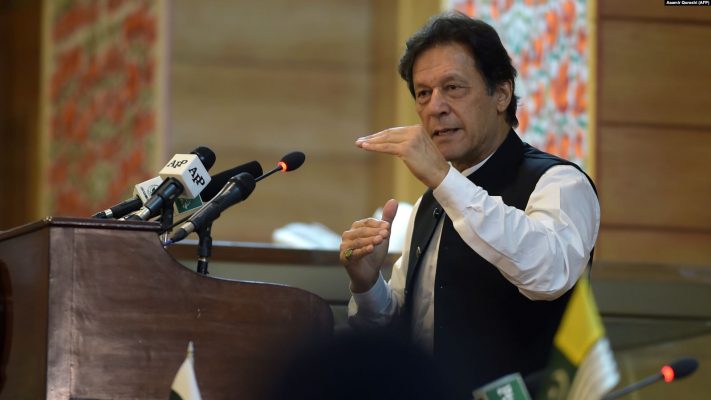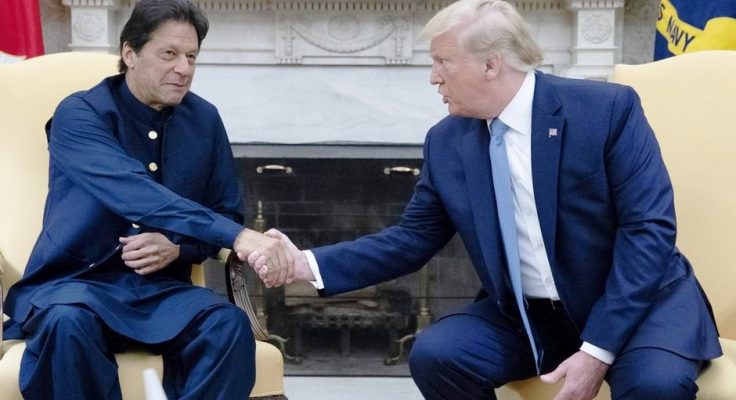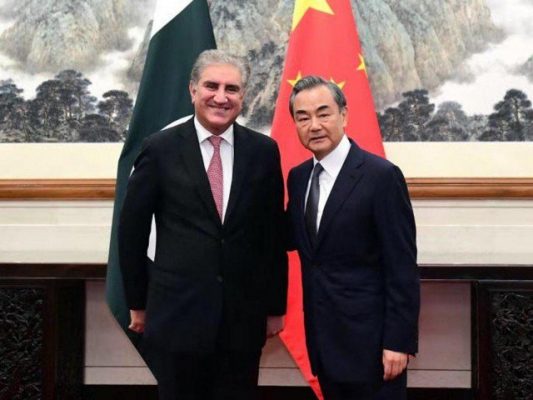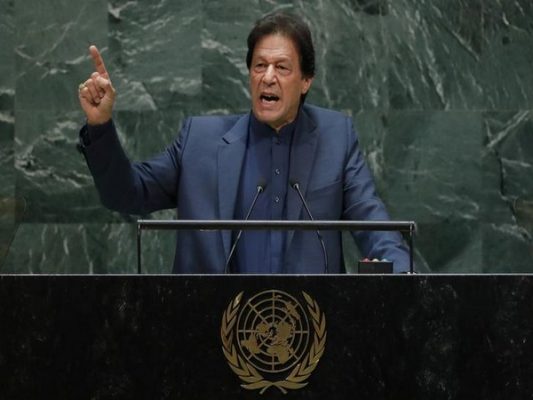
Abrogation of Article 370 and 35A of the Indian Constitution has different ramifications. One is certainly India getting the opportunity to watch the domestic politics of Pakistan closely. New Delhi knew that the issue would ignite a spell of debate afresh in Islamabad. Pakistani Prime Minister Imran Khan was in haste convincing different stakeholders of Pakistan regarding his government’s stand on the issue and how Islamabad decided to set the momentum taking into confidence both Karachi and Rawalpindi. So long, Imran Khan’s image in India has been of a cricket legend; one who led the Pakistani team winning ICC World Cup in 1992.
Cricket in the sub-continent is a passion and cricketers are adorable personalities. But the way Imran reacted in protest of abrogation of Article 370 and 35A changed his image completely. He spoke only radical words and presented him as messiah for the cause of Islam. Imran who lived a lavished life and known for his playboy image did not have strong relation with Islam. If such a person begins to advocate radical doctrine, this will surprise anybody. However, gradually the mist of obscurity was cleared and exposed the grim reality that Imran is doing all these things for his political survival in Pakistan. He was trying to avoid another military coup in the country and facing the same destiny as is the case with Nawaz Sharif or the worst happened with Zulfikar Ali Bhutto.

So, as present Pakistan exposed Imran as a diplomat, strategist and leading personality of the Islamic world in some form or other, this becomes important to have a look on the performance of Imran on the tricky-track of strategy building and diplomacy. It is significant to assess what Imran has achieved from his strategic and diplomatic mission. This will prove whether Imran’s status as a diplomat of Islamic world is a myth or reality. Imran’s initial reaction was, “incidents like Pulwama are bound to happen again. I can already predict this will happen. They will attempt to place the blame on us again. They may strike us again, and we will strike back. What will happen then? They will attack us and we will respond and the war can go both ways. But if we fight a war till we shed the last drop of our blood, who will win that war? No one will win it and it will have grievous consequences for the entire world. This is not nuclear blackmail.” Imran also clarified his strategic mission in the same breath, “We want the global leadership to take note. My party and I are taking the responsibility to approach the leaders of the world and apprise them of what is happening in Kashmir. I know the Western world, and I feel like they are not sufficiently aware of what is happening in Kashmir. I will inform them that what the Indian government is doing in Kashmir and what it is doing to Muslims and minorities in India goes against everything the Western world believes in.”
Indication was clear that Imran would not let the opportunity of reviving the Kashmir dispute slipping away. The outcome was thought to be a catchy issue to harness beleaguered Pakistan’s strategic mission. For this, Pakistani Foreign Minister Shah Mahmood Qureshi went to China urging for an emergency meeting on the issue at the UN Security Council. However, four out of five permanent members in the UN did not support Pakistan. Fact is: Imran Khan has failed in making proper judgment of the stands of both China and the United States since he started his strategic venture.

China’s occasional outcry and President Trump’s controversial statements blurred Imran’s vision. China’s stand against India is not confined to Pakistani agenda but is the product of larger strategic inputs. Trump has the compulsion of facing next election in the United States. Imran has utterly failed in balancing interests of China and the United States and evolving an indigenous strategic roadmap for Pakistan at this crucial point.
Washington and Beijing have no doubt buttered up Islamic sentiment. But this is not for Pakistan or taking any effective stand in favour of Pakistan but for harnessing their strategic mission. China and the United States need countries like Pakistan to ratify their controversial and suppressing stands against sizeable number of Muslim population across the globe. America and China always want that their oppressive approach against Islam must remain concealed under the Pakistani outcry over Kashmir and Imran’s strategy has fed it well so far. This means that on the chessboard of larger strategic game, Imran and his radical image have been used by the US and China. Another strategic endeavour made by Imran is Islamic fraternity. But the biggest grouping of Islamic countries, Organisation of Islamic Cooperation (OIC) snubbed Pakistan’s Kashmir issue. Rather, UAE has openly backed India on Kashmir issue. Surprisingly Taliban dismissed Imran’s effort of connecting Afghanistan situation with Kashmir. What is Imran’s strategic game plan then?

Imran’s provoking statement during his speech at the 74th UN meet brought severe criticism. How can anyone utter the synonyms of deaths and destructions in the UN platform? Imran perhaps forgot the realities that in diplomacy words are measured. This shows that Imran has emerged neither a strategist nor exponent of the Islamic world despite much narratives and articulations. Problem for Imran is: the state Pakistan has declined today both in terms of economy and rising enigmas; there remains hardly any scope for Pakistan to make balance its relationships with US-China and the Islamic world. Relationship on the strategic and diplomatic fronts cultivated by Pakistan so far has created this unavoidable contradiction. This is the prime reason behind Imran’s strategic mission becoming misadventure. But will Pakistan learn from this? On the eve of Bangladeshi Prime Minister Sheikh Hasina’s India visit, Imran talked to her. This depicts the bankruptcy of Pakistan’s strategic agenda yet again.
The writer is a Guwahati-based strategic affairs expert and author of ‘India’s Fragile Foreign Policy towards Neighbouring Nations’ and ‘Modi’s Rule and India’s Unbound Opportunities: Narrative of the Substantives and Beyond’








